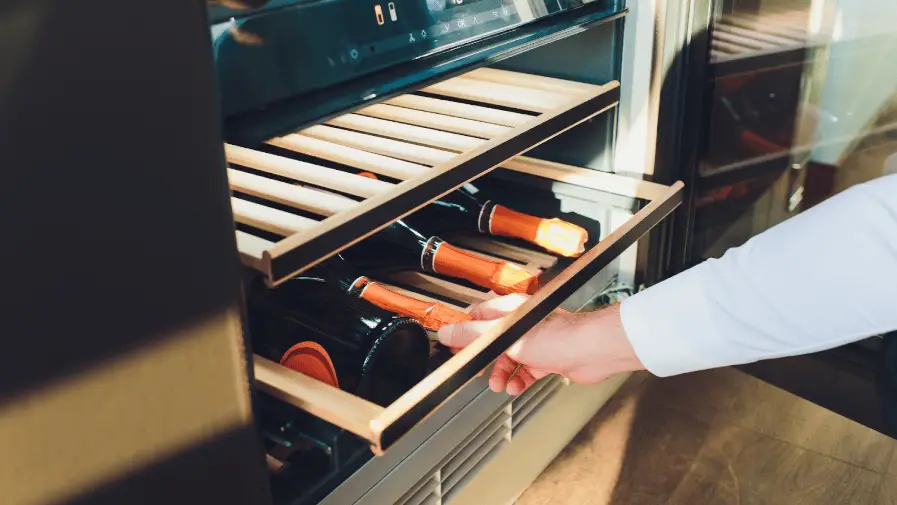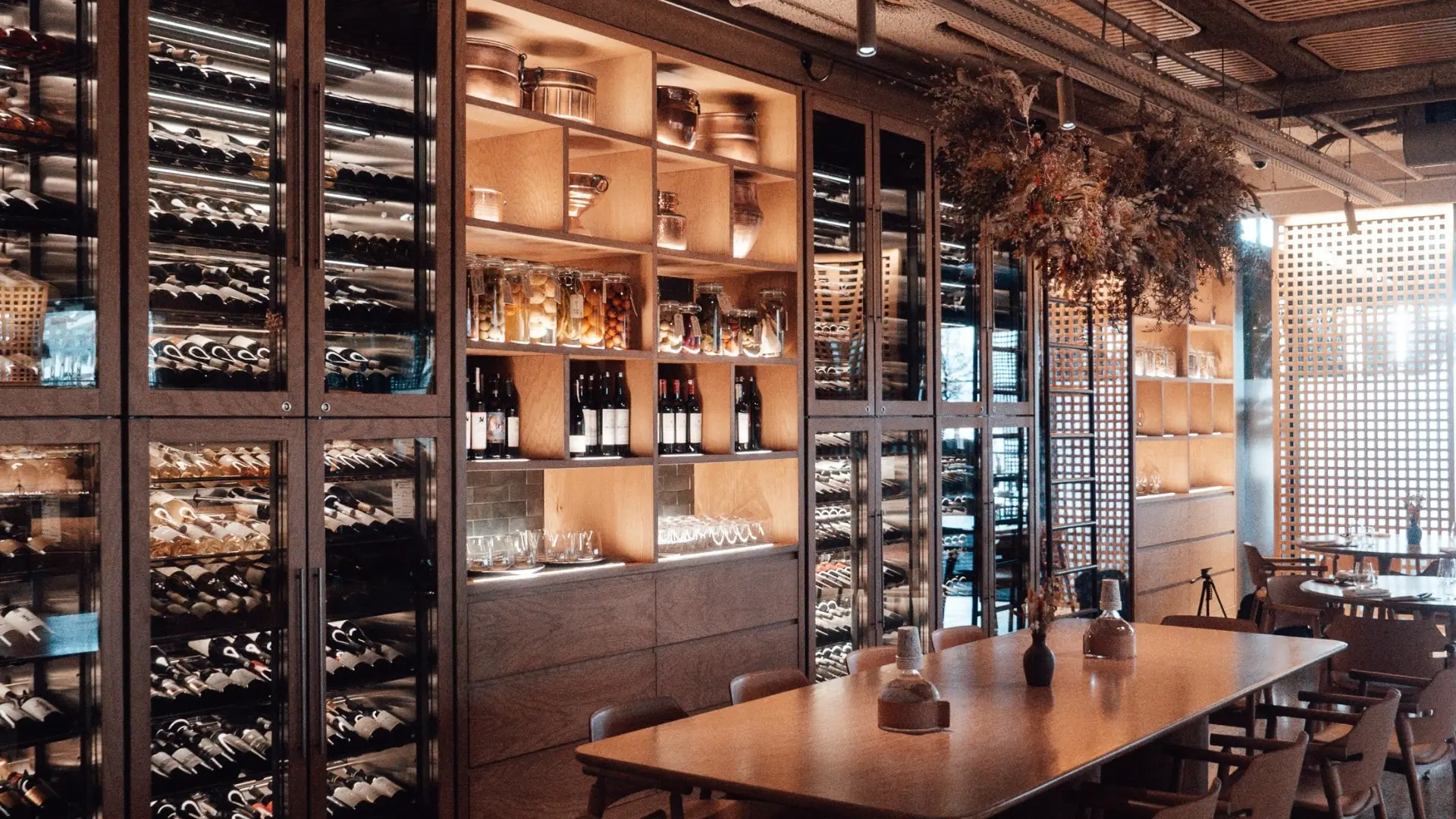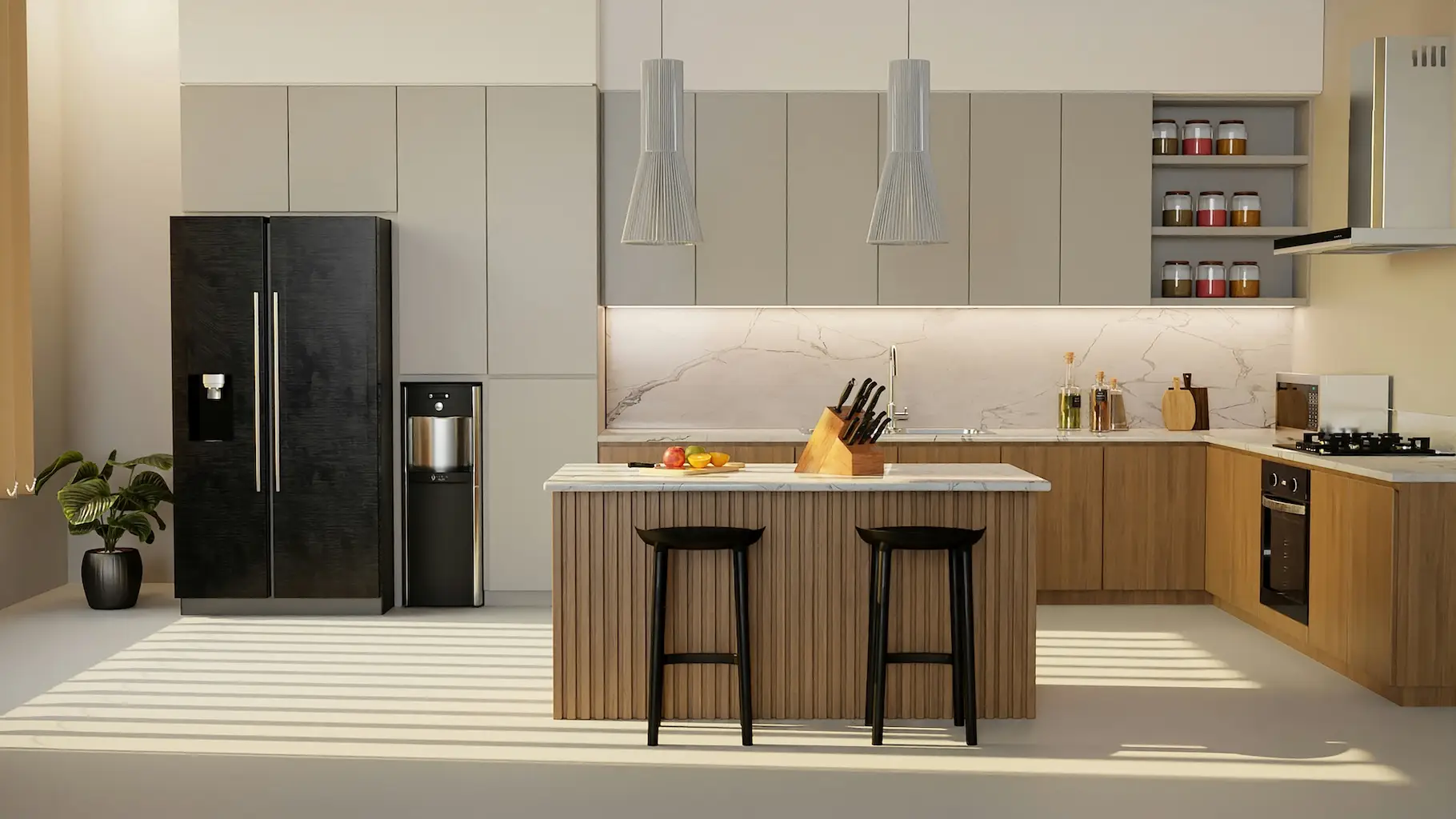Choosing the right wine cellar cooling system is a crucial step in protecting your valuable wine collection.
A well-functioning cooling system ensures that your wines are stored at the optimal temperature and humidity, preserving their quality and allowing them to age gracefully.
With a variety of cooling systems available, it’s essential to understand the different types, factors to consider, and key features to look for when making your selection.
Why is a Wine Cellar Cooling System Important?
Wine is a delicate beverage that is highly susceptible to changes in temperature and humidity.
Improper storage conditions can lead to premature aging, undesirable flavors, and even spoilage.
For that reason, a dedicated wine cellar cooling system provides a stable and controlled environment, protecting your investment and ensuring that your wines are enjoyed at their peak.
Excessive heat can “cook” the wine, resulting in flat aromas and flavors, while extreme cold can damage the wine and cause the cork to shrink, allowing air to enter and oxidize the wine.
Maintaining a consistent temperature within the ideal range of 55-58°F (13-14°C) is crucial for preserving the delicate balance of flavors and aromas in your wines.
Humidity also plays a vital role in wine storage.
The ideal humidity level for a wine cellar is between 50% and 70%. Too much humidity can promote mold growth, which can damage labels and potentially affect the wine.
Too little humidity, on the other hand, can cause corks to dry out, allowing air to seep into the bottle and spoil the wine.
A wine cellar cooling system with humidity control helps maintain the optimal moisture level, protecting your wines from both mold and oxidation.
What are the Different Types of Wine Cellar Cooling Systems?
There are three main types of wine cellar cooling systems, each with its advantages and disadvantages:
- Through-the-Wall Units: These self-contained units are installed through an exterior wall, venting heat outside the cellar. They are relatively easy to install and are suitable for small to medium-sized cellars. Through-the-wall units are also generally more affordable than other types of cooling systems. However, they can be noisy and may not be suitable for cellars located near living areas.
- Ducted Systems: These systems use ductwork to distribute cooled air throughout the cellar, offering more even temperature control and greater installation flexibility. They are ideal for larger cellars or those with unique layouts. Ducted systems can be more expensive than through-the-wall units, but they offer better temperature control and quieter operation.
- Split Systems: These systems have two separate components: a condensing unit that is installed outside the cellar and an evaporator unit that is installed inside. They offer quieter operation and are suitable for larger cellars or those where noise is a concern. Split systems are the most expensive type of cooling system, but they offer the best performance and are ideal for high-end wine cellars.
What Factors Should I Consider When Choosing a Cooling System?
When selecting a wine cellar cooling system, consider the following factors:
- Size and Capacity of Your Cellar: The cooling capacity of the system should be appropriate for the size of your cellar and the number of bottles you plan to store. A larger cellar will require a more powerful cooling system to maintain the desired temperature. For example, a 100-bottle cellar will require a cooling unit with a capacity of at least 2,500 BTUs, while a 500-bottle cellar may need a unit with a capacity of 10,000 BTUs or more.
- Insulation and Location of Your Cellar: A well-insulated cellar will require a less powerful cooling system. The location of your cellar, such as a basement or a warmer room, will also influence your choice. A cellar located in a warmer environment will need a more robust cooling system to compensate for the higher ambient temperature. Proper insulation and vapor barriers are essential for maintaining a stable temperature and preventing condensation, which can damage your wine labels and even the cellar structure itself.
- Budget and Energy Efficiency: Cooling systems vary in price and energy efficiency. Consider your budget and long-term operating costs when making your selection. Energy Star-certified systems are more energy-efficient and can save you money on your utility bills over time. Investing in a high-quality, energy-efficient cooling system can pay off in the long run by reducing your energy consumption and minimizing your environmental impact.
- Noise Level: Some cooling systems can be noisy, which might be a concern if your cellar is located near living areas. Split systems are generally the quietest option, followed by ducted systems. If noise is a major concern, consider a system with a variable-speed compressor, which adjusts its speed based on the cooling needs, resulting in quieter operation.
- Features and Technology: Look for features like digital thermostats, humidity control, and alarms to ensure optimal performance and protection for your wines. Some cooling systems also offer advanced features like remote monitoring and control, allowing you to manage your cellar’s environment from anywhere.
What are the Key Features to Look for in a Wine Cellar Cooling System?
Here are some essential features to consider when choosing a wine cellar cooling system:
- Accurate Temperature Control: The cooling system should maintain a consistent temperature within the ideal range of 55-58°F (13-14°C). Look for a system with a digital thermostat that allows for precise temperature adjustments. Some systems even offer dual-zone temperature control, allowing you to store different types of wine at their optimal temperatures.
- Humidity Control: Look for a system that can maintain humidity levels between 50-70% to prevent corks from drying out. Some cooling systems have built-in humidifiers, while others require a separate humidifier unit. A humidifier with automatic control ensures that the humidity level stays within the desired range without requiring manual adjustments.
- Air Filtration: A good cooling system should include an air filter to remove dust and odors, ensuring clean air circulation in your cellar. This helps prevent mold growth and protects your wines from unwanted odors. Look for a system with a high-quality air filter that can effectively remove dust, pollen, and other airborne particles.
- Quiet Operation: Choose a system with a low noise level, especially if your cellar is located near living areas. Split systems and ducted systems are generally quieter than through-the-wall units. Consider a system with a vibration-dampening design to minimize noise and vibration transfer.
- Energy Efficiency: Look for an Energy Star-certified system to minimize energy consumption and reduce operating costs. Energy-efficient systems can save you money on your utility bills over time. Look for a system with a high SEER (Seasonal Energy Efficiency Ratio) rating, which indicates its energy efficiency.
- Alarms and Safety Features: Consider a system with alarms that alert you to temperature fluctuations, power outages, or other potential issues. This helps you take prompt action to protect your wines in case of an emergency. Some systems also offer features like door-ajar alarms and low refrigerant level warnings.
Maintaining Your Wine Cellar Cooling System
Once you’ve chosen the right cooling system, it’s essential to maintain it properly to ensure optimal performance and longevity.
Regular maintenance tasks, such as cleaning or replacing air filters, checking for refrigerant leaks, and cleaning condenser coils, can help prevent costly repairs and extend the life of your cooling unit.
For more detailed information on wine cellar cooling unit maintenance, refer to our comprehensive guide: How to Extend the Life of Your Wine Cellar Cooling Unit?
Conclusion
After all, choosing the right wine cellar cooling system is an investment in the long-term preservation of your wine collection.
By understanding the different types of systems, considering the factors that influence your choice, and looking for key features, you can create the ideal environment for your wines to age gracefully and reach their full potential.
If you need assistance with selecting or installing a wine cellar cooling system, consider contacting a professional appliance repair service like Uptown Appliance Repair.
Our expertise in wine cellar cooling systems can help you make an informed decision and ensure that your collection is protected.





